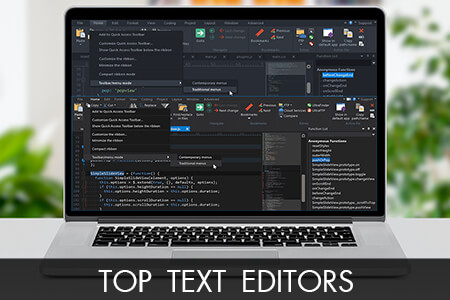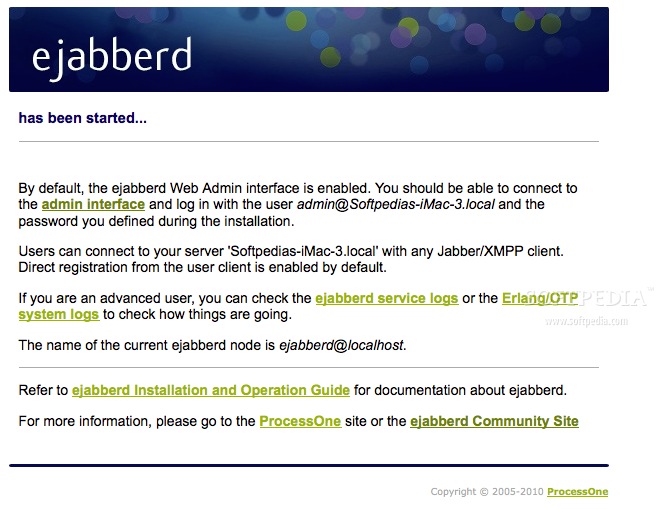Erlang Download Mac
OTP 23 has been released

- Download the latest IntelliJ IDEA build and install it. Setup the latest version of Erlang plugin from Configure Plugins Browse Repositories. Restart IntelliJ IDEA. You can import your existing Erlang project or create the new one.
- To have it yourself on your computer Mac or PC, you just have to follow the steps below: Click here = Download Bluestacks Download Nox for PC Download Nox Tuber Simulator” from the store.
- A compiler for Erlang to native code for a given target (x86, ARM, WebAssembly) An Erlang runtime, implemented in Rust, which provides the core functionality needed to implement OTP The primary motivator for Lumen's development was the ability to compile Elixir applications that could target WebAssembly, enabling use of Elixir as a language for.
OTP 23.0 Source File (248)
Try our web or desktop-based torrent clients for Mac, all available in one location. Download the version that is best for you.
OTP 23.0 Windows 32-bit Binary File (248)
OTP 23.0 Windows 64-bit Binary File (248)
OTP 23.0 HTML Documentation File (248)
OTP 23.0 Man Pages File (248)

OTP 23
Erlang/OTP 23 is a new major release with new features, improvements as well as a few incompatibilities.
Potential Incompatibilities
Erlang Download Mac Os
- SSL:
- Support for SSL 3.0 is completely removed.
- TLS 1.3 is added to the list of default supported versions.
erl_interface: Removed the deprecated parts oferl_interface(erl_interface.hand essentially all C functions with prefixerl_).- The deprecated
erlang:get_stacktrace/0BIF now returns an empty list instead of a stacktrace.erlang:get_stacktrace/0is scheduled for removal in OTP 24.
Erlang Download Windows
Improvements and new features
ssh:
- OpenSSH 6.5 introduced a new file representation of keys called
openssh-key-v1. This is now supported with the exception of handling encrypted keys. - Algorithm configuration could now be done in a .config file. This is useful for example to enable an algorithm that is disabled by default without need to change the code.
- OpenSSH 6.5 introduced a new file representation of keys called
SSL:
- Support for the middlebox compatibility mode makes the TLS 1.3 handshake look more like a TLS 1.2 handshake and increases the chance of successfully establishing TLS 1.3 connections through legacy middleboxes.
- Add support for key exchange with Edward curves and PSS-RSA padding in signature verification
The possibility to run Erlang distribution without relying on EPMD has been extended. To achieve this a couple of new options to the inet distribution has been added.
-dist_listen falseSetup the distribution channel, but do not listen for incoming connection.-erl_epmd_port PortConfigure a default port that the built-in EPMD client should return.
A first EXPERIMENTAL
socketbackend togen_tcpandinethas been implemented.gen_udpandgen_sctpwill follow.
Putting{inet_backend, socket}as first option tolisten()orconnect()makes it easy to try this for existing codeA new module
erpcin kernel which implements an enhanced subset of the operations provided by therpcmodule. Enhanced in the sense that it makes it possible to distinguish between returned value, raised exceptions and other errors.erpcalso has better performance and scalability than the originalrpcimplementation. This by utilizing the newly introducedspawn_request()BIF. Also therpcmodule benefits from these improvements by utilizingerpcwhen possible.Scalability and performance Improvements plus new functionality regarding distributed spawn operations.
In binary matching, the size of the segment to be matched is now allowed to be a guard expression (EEP-52)
When matching with maps the keys can now be guard expressions (EEP-52).
ssh: support for TCP/IP port forwarding, a.k.a tunnelling a.k.a as tcp-forward/direct-tcp is implemented. In the OpenSSH client, this corresponds to the options -L and -R.
Allow underscores in numeric literals to improve readability. Examples:
123_456_789,16#1234_ABCD.New functions in the shell for displaying documentation for Erlang modules, functions and types. The
functions are:h/1,2,3-- Print the documentation for aModule:Function/Arity.ht/1,2,3-- Print the type documentation for aModule:Type/Arity.
The embedded documentation is created as docchunks (EEP 48) when building the Erlang/OTP documentation.
kernel: The module
pgwith a new implementation of distributed named process groups is introduced. The old modulepg2is deprecated and scheduled for removal in OTP 24.Our tool chain for building the Windows packages is upgraded with new C++ compiler, Java compiler, OpenSSL libraries and wxWidgets versions. We are now using WSL (the Linux Subsystem for Windows when building) which makes it easier to handle the build environment.
For more details see
http://erlang.org/download/otp_src_23.0.readme
Pre built versions for Windows with the new compiler can be fetched here:
http://erlang.org/download/otp_win32_23.0.1.exe
http://erlang.org/download/otp_win64_23.0.1.exe
Online documentation can be browsed here:
http://erlang.org/documentation/doc-11.0/doc
The Erlang/OTP source can also be found at GitHub on the official Erlang repository,
https://github.com/erlang/otp
About Erlang & OTP
Erlang is a functional programming language used to build scalable real-time systems with high availability. OTP is a set of libraries and the foundation of these systems. In this article, you will learn how to install and use the latest version of Erlang/OTP R16B on Mavericks, Mountain Lion, Lion or Snow Leopard.
How to Install


Rudix provides Erlang pre-compiled packages for Mavericks, Mountain Lion, Lion and Snow Leopard.The page you will going to access is rudix.org/packages/erlang.html.
After the download, double click the package and follow the installation instructions. Note that Erlang/OTP is big and requires (after installed) about 300MB of disk space.
Default installation path

Erlang/OTP will be installed under /usr/local/ and the full path for the Erlang/OTP interpreter will be /usr/local/bin/erl, but you don’t need to type the full path every time you want to call Erlang, it’s OK just to type erl on the Terminal to get the interpreter.
Important files:
Security note for Mountain Lion and Mavericks
On Mountain Lion and Mavericks things are a bit hard, you will probably get “erlang-R15B02-0.pkg” can’t be opened because it is from an unidentified developer. This means that the package was not registered with Apple – but you can choose to trust Rudix developers (I’m the author) and install anyway.
Here is how to bypass once your security settings:
- Press the
Controlkey and click the package. - Choose Open from the pop-up menu.
- Click Open button.
And now follow the installation instructions.
Testing Erlang/OTP
Test if your installation is OK by printing “Hello World!”.
Type Control+G, q and Return to exit. There’s a command halt(). with the same effect.